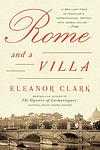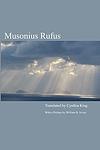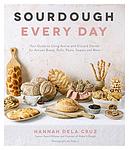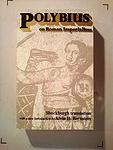The Greatest "Rome, Nonfiction" Books of All Time
Click to learn how this list is calculated.
This list represents a comprehensive and trusted collection of the greatest books. Developed through a specialized algorithm, it brings together 300 'best of' book lists to form a definitive guide to the world's most acclaimed books. For those interested in how these books are chosen, additional details can be found on the rankings page.
Genres
The category of "Rome" in books refers to literature that is set in ancient Rome or focuses on the history, culture, and society of the Roman Empire. These books may include historical fiction, biographies, memoirs, and academic works that explore the political, social, and economic aspects of Rome. The genre may also encompass stories of gladiators, emperors, soldiers, and other figures from Roman mythology and history. Overall, the category of "Rome" offers readers a glimpse into one of the most influential civilizations in human history.
Countries
Date Range
Reading Statistics
Click the button below to see how many of these books you've read!
Download
If you're interested in downloading this list as a CSV file for use in a spreadsheet application, you can easily do so by clicking the button below. Please note that to ensure a manageable file size and faster download, the CSV will include details for only the first 500 books.
Download-
1. Confessions by Augustine
"Confessions" is an autobiographical work by a renowned theologian, in which he outlines his sinful youth and his conversion to Christianity. It is written in the form of a long, introspective prayer directed to God, exploring the author's spiritual journey and deep philosophical ponderings. The book is renowned for its eloquent and deeply personal exploration of faith, making it a cornerstone of Christian theology and Western literature.
-
2. The Decline and Fall of the Roman Empire by Edward Gibbon
This historical work provides a comprehensive perspective on the fall of the Roman Empire, examining its decline from the height of its power in the second century A.D. through the fall of Constantinople in 1453. The author meticulously chronicles the empire's deterioration due to a variety of factors, including moral decay, economic crisis, military incompetence, barbarian invasions, and internal power struggles, while also offering insightful commentary on the broader implications for Western civilization.
-
3. Meditations by Marcus Aurelius
"Meditations" is a collection of personal writings by a Roman Emperor, providing deep insights into Stoic philosophy. The book is a series of introspective reflections on how to deal with life's challenges with wisdom, integrity, self-discipline, and benevolent affection for all mankind. It serves as a manual for self-improvement and moral guidance, emphasizing the importance of accepting things outside of one's control and maintaining a tranquil mind amidst adversity.
-
4. De Rerum Natura by Lucretius
"De Rerum Natura" is a long didactic poem written in the first century BC, which explores Epicurean philosophy and the nature of the universe. The text delves into topics such as the nature of the gods, the atomic structure of the universe, human sensation and thought, and the fear of death. The author argues that understanding the physical world can free humans from superstition and fear, leading to peace of mind and true happiness.
-
5. Parallel Lives by Plutarch
"Parallel Lives" is a collection of biographies of famous Greek and Roman figures, written in pairs to draw comparisons between their lives. The work explores the influence of character on the lives and destinies of these historical figures. The biographies are not only a record of the lives of these individuals, but also provide insight into the times in which they lived, offering a unique perspective on the history and culture of the ancient world.
-
6. Mythology by Edith Hamilton
This book is a comprehensive guide to ancient Greek, Roman, and Norse mythologies, providing detailed accounts of various gods, goddesses, heroes, and other mythological creatures. It includes well-known stories like the Odyssey and the Iliad, along with lesser-known tales, and analyzes their significance in the cultures they originated from. The book also delves into the origins of these myths and their influence on later civilizations, offering readers a deep understanding of ancient cultures and their belief systems.
-
7. Annals by Cornelius Tacitus
"Annals" is a historical work that provides a comprehensive account of the Roman Empire from the reign of Tiberius in 14 AD to the death of Nero in 68 AD. The author, a senator and historian of the Roman Empire, explores the inner workings of Roman politics, military campaigns, and social culture during this period. The book offers an in-depth look at the political machinations, power struggles, and the moral decay of the Roman elite, providing a critical perspective on the Roman emperors and their rule.
-
8. Lives of the Caesars by Suetonius
"Lives of the Caesars" is a historical narrative that provides a detailed account of the personal and public lives of the first twelve Roman emperors, from Julius Caesar to Domitian. The author presents a vivid depiction of their character, behavior, appearance, and private lives, as well as their political actions, military exploits, and administrative policies. The book is a valuable source of information about the Roman Empire's early days, offering a unique perspective on the power, corruption, and extravagance of the Roman elite.
-
9. Letters from a Stoic by Seneca
"Letters from a Stoic" is a collection of moral epistles written by a renowned Stoic philosopher. The letters provide practical guidance on everything from dealing with adversity and the pursuit of wisdom to the folly of consumerism and the nature of friendship. The author's stoic philosophy encourages peace of mind through understanding and accepting the natural order of the universe, and his letters offer timeless wisdom and insights that are still relevant today.
-
10. Histories by Cornelius Tacitus
"Histories" is a comprehensive account of the Roman Empire from 69-96 AD, a period marked by significant political turmoil. It provides an in-depth look at the reigns of four emperors: Galba, Otho, Vitellius, and Vespasian, along with the social and political upheavals of the time. The narrative also covers the Jewish rebellion and the burning of the Jerusalem Temple, offering a rich historical context of the period. Despite some gaps in the record, it remains a crucial primary source for understanding this era of Roman history.
-
11. Enneads by Plotinus
"Enneads" is a collection of 54 philosophical treatises by Plotinus, a prominent philosopher of the ancient world. The work is a cornerstone of Neoplatonism, a school of Hellenistic philosophy that sought to reconcile Greek philosophy with religious mysticism. The book covers a wide range of topics, including the nature of reality, the self, the universe, and the divine. The author argues for the existence of a transcendent One from which all existence emanates, and that the goal of human life is to strive for unity with this divine principle.
-
12. Germania by Cornelius Tacitus
"Germania" is a historical and ethnographic work that provides a detailed description of the lands, customs, and tribes of the Germanic people in the first century AD. The author, a Roman historian and senator, offers a comprehensive account of the geography, anthropology, social institutions, and military practices of the Germanic tribes, often comparing their culture and values to those of the Romans. The work is considered a valuable source of information about the ancient Germanic tribes, despite its possible biases and inaccuracies.
-
13. Titi Livi Ab urbe condita libri by Livy
This historical work offers a comprehensive narrative of the history of Rome, from its mythical origins to the reign of the Roman Emperor Augustus. The author chronicles the major political, military, and social events of the Roman Republic, including the founding of the city, the establishment of the Republic, the Punic Wars, and the rise of Julius Caesar. The book is a significant source of information about the early history of Rome and is often considered one of the most important works of Roman history.
-
14. Poetry by Quintus Lutatius Catulus
This book is a collection of ancient Roman poetry by a renowned statesman and poet. The poems reflect the author's experiences, thoughts, and feelings about life, love, politics, and society during the Roman Republic era. The author's eloquent and vivid writing style, combined with his astute observations and insights, make this book a valuable resource for understanding Roman culture and history.
-
15. Catiline Orations by Marcus Tullius Cicero
"Catiline Orations" is a series of speeches given by a renowned Roman statesman, which were aimed at exposing and condemning the conspiracy led by Lucius Sergius Catilina. The speeches, delivered in the Roman Senate, are a masterful display of oratory skills and political acumen, as the statesman successfully manages to turn the Senate against Catiline, ultimately leading to his downfall. The book offers an in-depth study of these speeches, providing valuable insights into Roman politics, rhetoric, and the art of persuasion.
-
16. Natural History by Pliny (the Elder)
"Natural History" is an extensive work of literature that provides a comprehensive look at the knowledge of the natural world during the Roman era. The book is divided into 37 volumes, each focusing on different aspects such as geography, anthropology, zoology, botany, and mineralogy. The author's curiosity and fascination with the world are evident in his detailed observations and descriptions. The book also includes discussions on art, sculpture, and various other topics, providing a rich and detailed snapshot of the Roman understanding of the world.
-
17. Rome And A Villa by Eleanor Clark
This book is a rich and evocative travel memoir that takes the reader on a journey through the timeless beauty and layered history of Rome and its surroundings. The author, with a keen eye for detail and a deep appreciation for art and architecture, shares her experiences and observations as she explores the Eternal City and resides in an ancient villa. Through her lyrical prose, the narrative delves into the intermingling of past and present, revealing the city's enduring allure and the author's personal reflections on the cultural and historical tapestry that defines Rome.
-
18. Epistles by Horace
"Epistles" is a collection of poetic letters offering insights into the human condition, moral philosophy, and the art of living well. Written in the first century BCE, the work reflects the author's mature thoughts on various subjects, ranging from personal ethics to literary criticism. Through these letters, the poet shares his wisdom with friends and notable contemporaries, employing a conversational tone that blends humor, irony, and sincerity. The epistles serve as a guide to practical wisdom, emphasizing moderation, self-awareness, and the importance of living in harmony with nature and society.
-
19. Satires by Horace
"Satires" is a collection of poetic essays that delve into the follies and vices of Roman society during the first century BCE. Through a series of witty, critical, and often self-deprecating poems, the author explores themes such as greed, corruption, and social ambition, while advocating for a life of moderation and philosophical contentment. Employing a conversational tone and a keen eye for the absurd, the work satirizes the behaviors of both the elite and the common people, offering a timeless reflection on human nature and the pursuit of happiness.
-
20. Musonius Rufus by Musonius Rufus, Cynthia King
This book presents the teachings of Musonius Rufus, a prominent Stoic philosopher of the 1st century AD, whose ideas focus on the practical applications of Stoicism in daily life. Through a series of lectures and dialogues, Rufus emphasizes the importance of virtue as the sole path to happiness, advocating for simplicity in living, self-discipline, and equality between men and women in education and marriage. His accessible philosophy addresses how to live a good and moral life, covering topics from diet and exercise to the handling of emotions and the importance of philosophical study.
-
21. On The Ends Of Good And Evil by Marcus Tullius Cicero
"On the Ends of Good and Evil" is a philosophical work that explores the ethical theories of Hellenistic schools, including Stoicism, Epicureanism, and the Peripatetic tradition. Through a series of dialogues, the text delves into the nature of happiness and the ultimate end of human action, examining what constitutes the highest good. The author critiques and compares the doctrines of these schools, ultimately defending the Stoic view that virtue is the sole basis of happiness and the ultimate goal in life, while also acknowledging valuable insights from other philosophical traditions.
-
22. How We Live by Rust Hills
"How We Live" is a collection of essays that explore the various aspects of human life. The author delves into topics such as love, death, work, and leisure, offering insightful and often humorous commentary. Through his reflections, the author attempts to answer the fundamental question of what it means to be human and how our daily actions and choices shape our existence.
-
23. Catiline's War, The Jugurthine War, Histories by Sallust
This book is a combination of three works by a Roman historian and politician, focusing on the political and military events of the late Roman Republic. It first covers the conspiracy led by Catiline in 63 BC, then shifts to the war against Jugurtha in North Africa, and finally provides a fragmentary history of Rome from 78-67 BC. The author uses these events to critique the moral decay of Rome, highlighting the corruption, greed, and ambition that he believed led to the fall of the Republic.
-
24. The Histories by Polybius
"The Histories" is a comprehensive account of the rise of the Roman Empire, focusing on the period from 264-146 BC. The author, a Greek statesman, provides a detailed analysis of the political, military, and social structures of Rome, attributing its success to a balanced constitution and superior military organization. The work also includes first-hand accounts of several significant events, such as the Third Punic War and the Numantine War.
-
25. The Lost Painting by Jonathan Harr
"The Lost Painting" tells the story of a lost masterpiece by Italian Baroque artist Caravaggio, titled "The Taking of Christ." The book follows the journey of a young art historian, Francesca Cappelletti, as she sets out to uncover the painting's whereabouts. Along the way, she encounters a cast of characters including art dealers, art historians, and even a mafia boss. Through meticulous research and a bit of luck, Cappelletti finally locates the painting in a Dublin Jesuit house, where it had been hanging for centuries, unrecognized as a Caravaggio. The book is a captivating tale of art history, detective work, and the power of obsession.
Reading Statistics
Click the button below to see how many of these books you've read!
Download
If you're interested in downloading this list as a CSV file for use in a spreadsheet application, you can easily do so by clicking the button below. Please note that to ensure a manageable file size and faster download, the CSV will include details for only the first 500 books.
Download






















